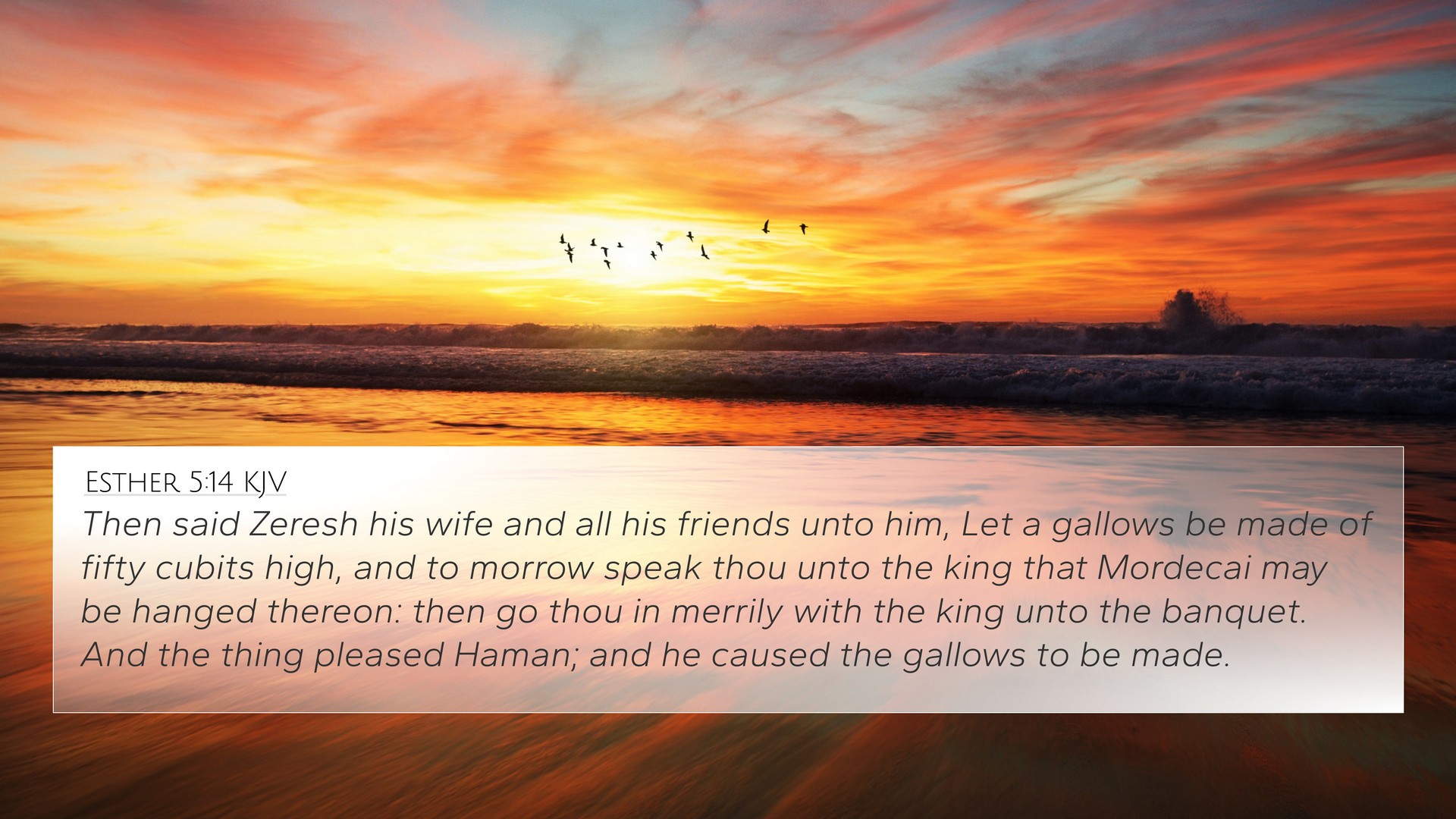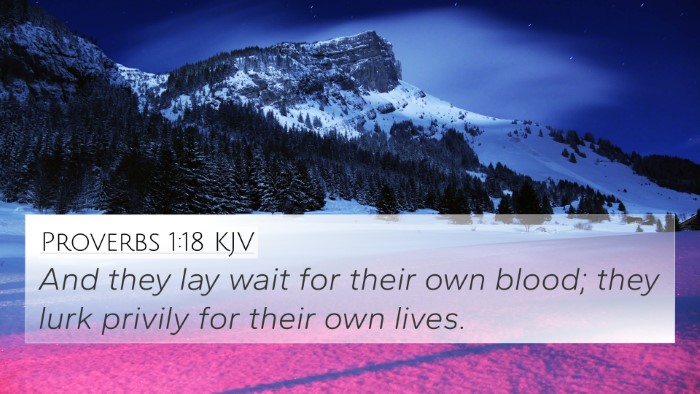Old Testament
Genesis Exodus Leviticus Numbers Deuteronomy Joshua Judges Ruth 1 Samuel 2 Samuel 1 Kings 2 Kings 1 Chronicles 2 Chronicles Ezra Nehemiah Esther Job Psalms Proverbs Ecclesiastes Song of Solomon Isaiah Jeremiah Lamentations Ezekiel Daniel Hosea Joel Amos Obadiah Jonah Micah Nahum Habakkuk Zephaniah Haggai Zechariah MalachiEsther 5:14 Similar Verses
Esther 5:14 Cross References
Then said Zeresh his wife and all his friends unto him, Let a gallows be made of fifty cubits high, and to morrow speak thou unto the king that Mordecai may be hanged thereon: then go thou in merrily with the king unto the banquet. And the thing pleased Haman; and he caused the gallows to be made.
Uncover the Rich Themes and Topics of This Bible Verse
Listed below are the Bible themes associated with Esther 5:14. We invite you to explore each theme to gain deeper insights into the Scriptures.
Esther 5:14 Cross Reference Verses
This section features a detailed cross-reference designed to enrich your understanding of the Scriptures. Below, you will find carefully selected verses that echo the themes and teachings related to Esther 5:14 KJV. Click on any image to explore detailed analyses of related Bible verses and uncover deeper theological insights.
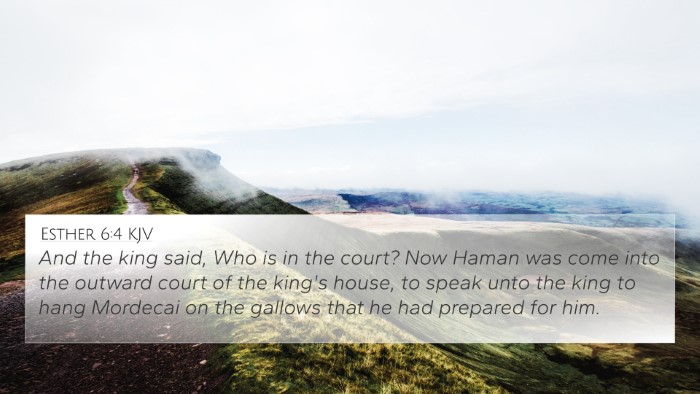
Esther 6:4 (KJV) »
And the king said, Who is in the court? Now Haman was come into the outward court of the king's house, to speak unto the king to hang Mordecai on the gallows that he had prepared for him.
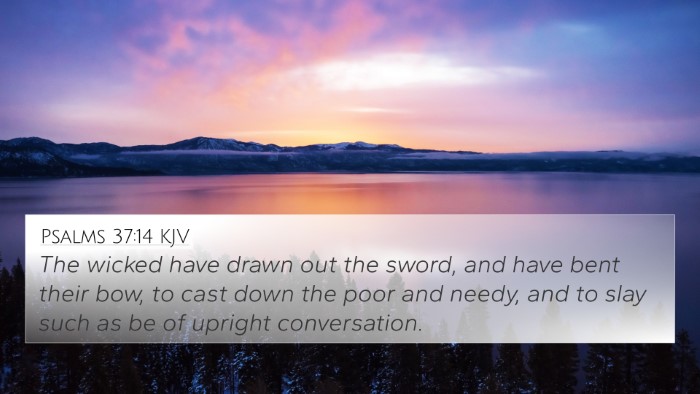
Psalms 37:14 (KJV) »
The wicked have drawn out the sword, and have bent their bow, to cast down the poor and needy, and to slay such as be of upright conversation.
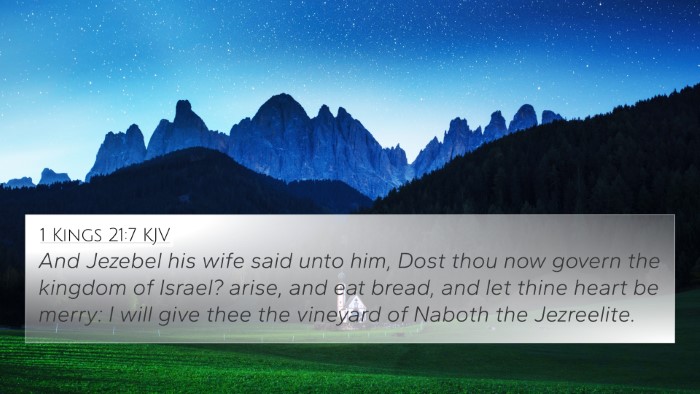
1 Kings 21:7 (KJV) »
And Jezebel his wife said unto him, Dost thou now govern the kingdom of Israel? arise, and eat bread, and let thine heart be merry: I will give thee the vineyard of Naboth the Jezreelite.
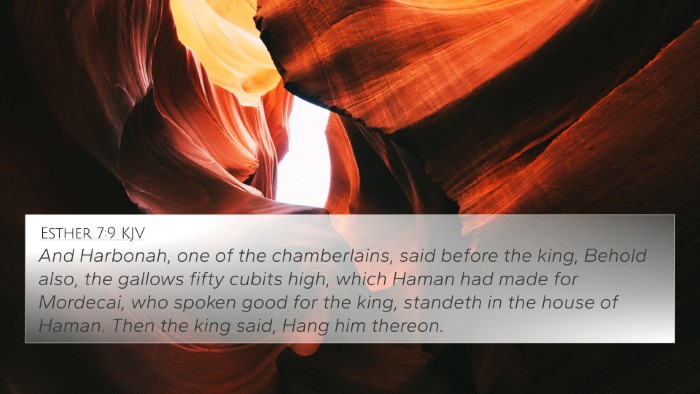
Esther 7:9 (KJV) »
And Harbonah, one of the chamberlains, said before the king, Behold also, the gallows fifty cubits high, which Haman had made for Mordecai, who spoken good for the king, standeth in the house of Haman. Then the king said, Hang him thereon.

Acts 23:14 (KJV) »
And they came to the chief priests and elders, and said, We have bound ourselves under a great curse, that we will eat nothing until we have slain Paul.
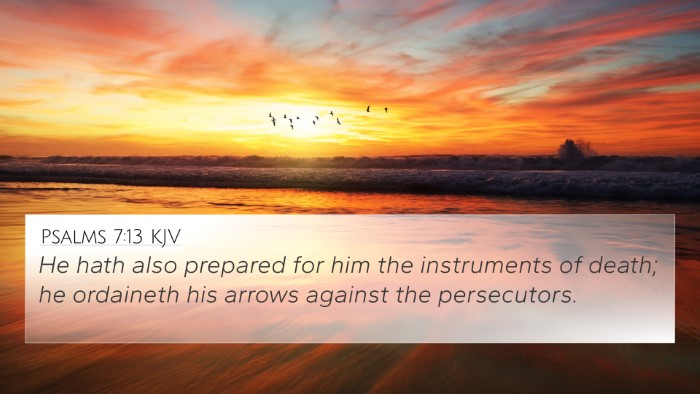
Psalms 7:13 (KJV) »
He hath also prepared for him the instruments of death; he ordaineth his arrows against the persecutors.
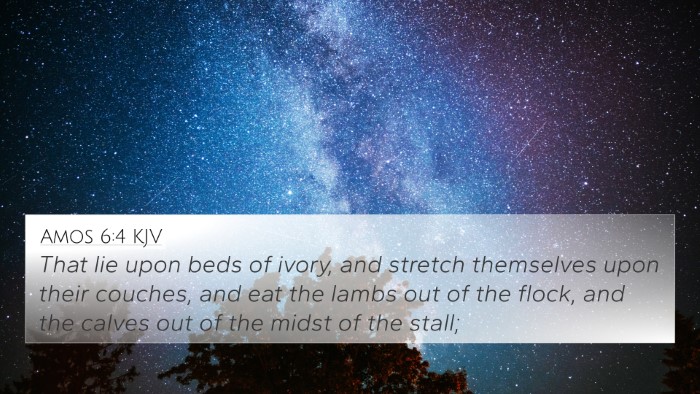
Amos 6:4 (KJV) »
That lie upon beds of ivory, and stretch themselves upon their couches, and eat the lambs out of the flock, and the calves out of the midst of the stall;
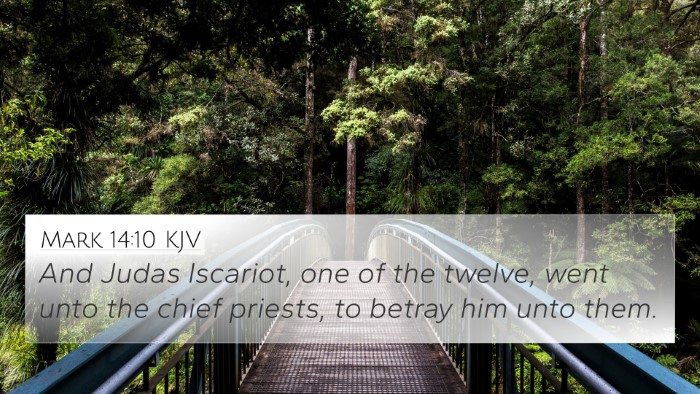
Mark 14:10 (KJV) »
And Judas Iscariot, one of the twelve, went unto the chief priests, to betray him unto them.
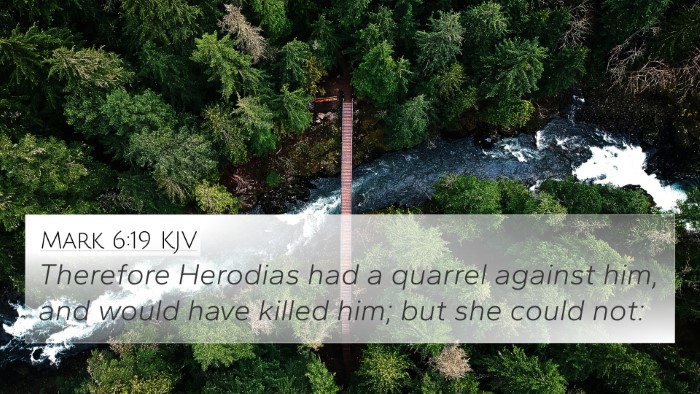
Mark 6:19 (KJV) »
Therefore Herodias had a quarrel against him, and would have killed him; but she could not:
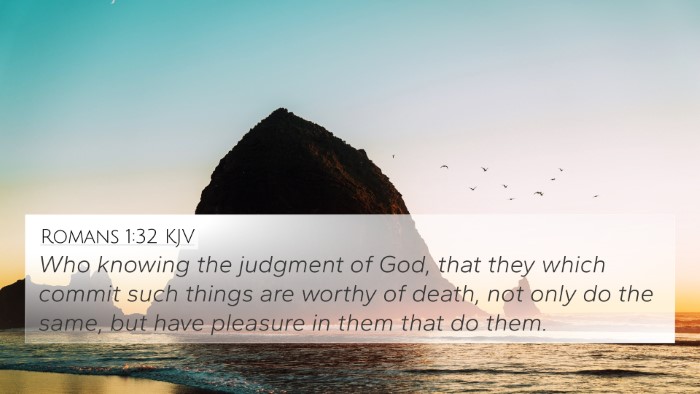
Romans 1:32 (KJV) »
Who knowing the judgment of God, that they which commit such things are worthy of death, not only do the same, but have pleasure in them that do them.

Proverbs 4:16 (KJV) »
For they sleep not, except they have done mischief; and their sleep is taken away, unless they cause some to fall.
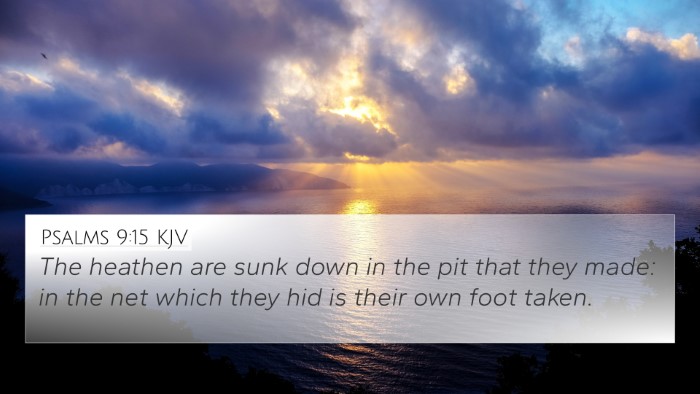
Psalms 9:15 (KJV) »
The heathen are sunk down in the pit that they made: in the net which they hid is their own foot taken.
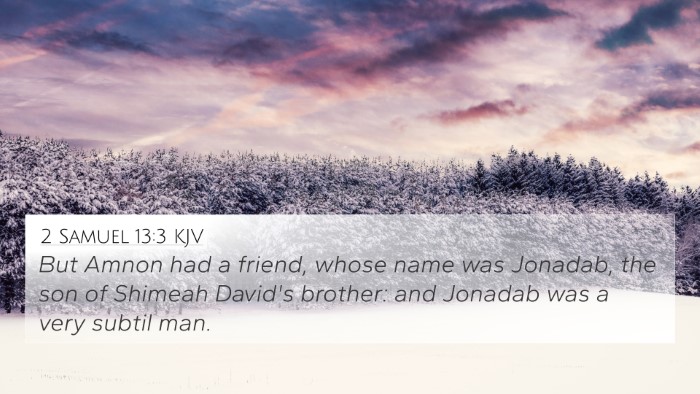
2 Samuel 13:3 (KJV) »
But Amnon had a friend, whose name was Jonadab, the son of Shimeah David's brother: and Jonadab was a very subtil man.
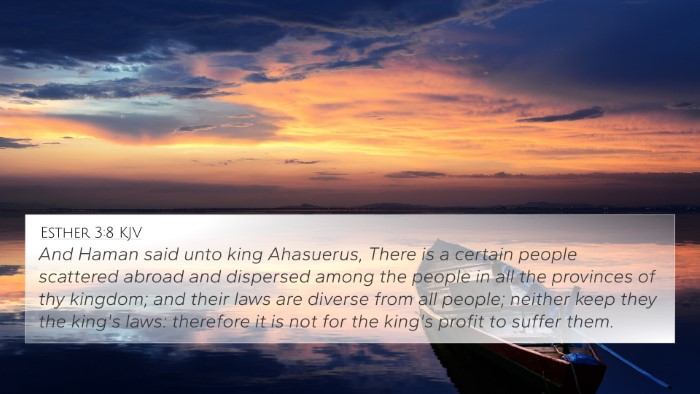
Esther 3:8 (KJV) »
And Haman said unto king Ahasuerus, There is a certain people scattered abroad and dispersed among the people in all the provinces of thy kingdom; and their laws are diverse from all people; neither keep they the king's laws: therefore it is not for the king's profit to suffer them.
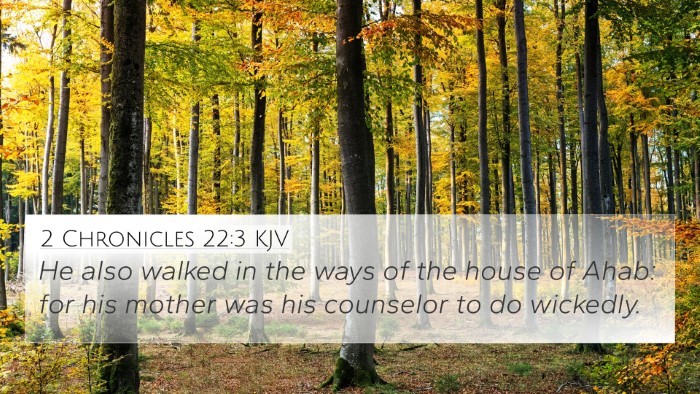
2 Chronicles 22:3 (KJV) »
He also walked in the ways of the house of Ahab: for his mother was his counselor to do wickedly.
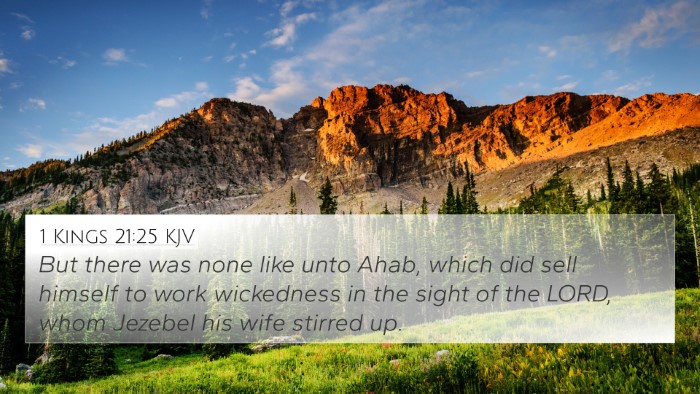
1 Kings 21:25 (KJV) »
But there was none like unto Ahab, which did sell himself to work wickedness in the sight of the LORD, whom Jezebel his wife stirred up.

2 Samuel 16:21 (KJV) »
And Ahithophel said unto Absalom, Go in unto thy father's concubines, which he hath left to keep the house; and all Israel shall hear that thou art abhorred of thy father: then shall the hands of all that are with thee be strong.
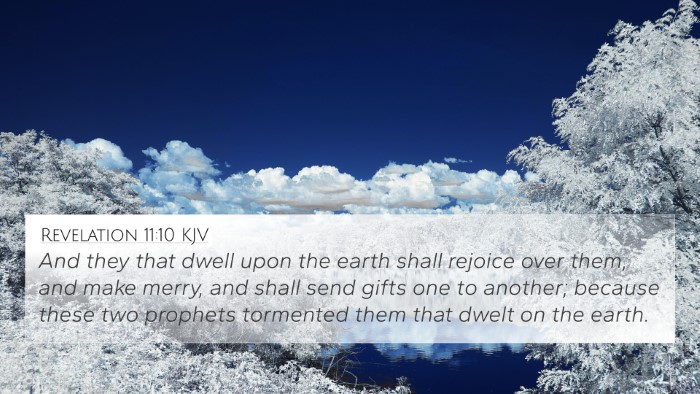
Revelation 11:10 (KJV) »
And they that dwell upon the earth shall rejoice over them, and make merry, and shall send gifts one to another; because these two prophets tormented them that dwelt on the earth.
Esther 5:14 Verse Analysis and Similar Verses
Bible Verse Meaning and Interpretation - Esther 5:14
Esther 5:14: "Then said Zeresh his wife and all his friends unto him, Let a gallows be made of fifty cubits high, and in the morning speak thou unto the king that Mordecai may be hanged thereon. Then go thou in merrily with the king unto the banquet. And the thing pleased Haman; and he caused the gallows to be made."
Overview and Context
The book of Esther presents a dramatic story of Jewish survival and divine providence during a time of impending doom. In Esther 5:14, we observe a pivotal moment as Haman, a nobleman full of pride and anger against Mordecai, plots evil with the counsel of his wife Zeresh and friends. This verse sets the stage for his imminent downfall, illustrating the overarching themes of pride, vengeance, and unexpected divine intervention.
Verse Meaning and Insights
This verse highlights the malicious plan of Haman and the influence of his close circle. The gallows, which are a symbol of execution and shame, represent Haman's extreme measures in dealing with perceived insults to his honor. The following insights drawn from public domain commentaries help clarify the meaning of this verse:
- Matthew Henry: Henry emphasizes the folly of Haman's pride, noting how he transforms personal slights into public vengeance. His desire to be honored is met with profound humiliation in the narrative of Esther.
- Albert Barnes: Barnes sheds light on the intensity of Haman’s emotions, stating that he consults his wife and friends, which indicates his reliance on worldly counsel rather than seeking wisdom from God. This choice leads to his eventual downfall.
- Adam Clarke: Clarke discusses how the idea of the gallows reflects Haman’s deep-rooted malice and the seriousness of the Jewish plight under his influence. The construction of the gallows serves as a foreshadowing of divine retribution.
Thematic Considerations
The themes of this verse are significant for understanding broader Biblical messages:
- Consequences of Pride: Haman’s pride blinds him to the reality of his actions, illustrating how pride often leads to ruin (Proverbs 16:18).
- The Role of Counsel: Haman’s consultation with his wife and friends showcases the importance of wise counsel in decision-making (Proverbs 15:22).
- God’s Sovereignty: Although Haman plots against Mordecai, the overarching narrative of Esther reveals God's control over human affairs and the eventual triumph of the oppressed.
Cross-References
Esther 5:14 connects with several Bible verses that explore related themes:
- Proverbs 16:18: "Pride goes before destruction, a haughty spirit before a fall." This verse complements the narrative of Haman’s pride.
- Esther 7:9-10: Describes Haman's own demise through the gallows he constructed.
- Psalms 7:15: "He made a pit, and dug it, and is fallen into the ditch which he made." This illustrates the idea of self-sabotage through wicked plotting.
- Matthew 5:10: Blessings are pronounced upon those persecuted for righteousness, contrasting Haman's actions against Mordecai.
- Jeremiah 17:10: The verse demonstrates God’s judgment according to the heart’s intent, linking to Haman’s wickedness.
- Galatians 6:7: "Do not be deceived: God is not mocked, for whatever one sows, that will he also reap." Haman’s plans against Mordecai will ultimately backfire.
- Job 5:13: "He catches the wise in their own craftiness," a statement about how Haman's schemes will lead to his own downfall.
Inter-Biblical Dialogue
Esther 5:14 can prompt deeper study by exploring connections with other biblical texts:
- Understanding the Lessons of Daniel: Like Haman, those in power (e.g., Nebuchadnezzar) find their plans thwarted when they underestimate God's followers.
- The contrast with Joseph: Joseph’s rise to power in Egypt serves as a counter-narrative to Haman’s fall, highlighting the contrasting responses to God’s providence.
Conclusion
Esther 5:14 serves as a profound reminder of the dynamics between pride and divine justice. Cross-referencing this verse with related themes enriches our understanding of biblical principles and the consequences of unrepentant sin. By examining these connections, we uncover an enduring narrative of hope and divine deliverance amidst human plotting. Utilizing tools for Bible cross-referencing, such as concordances and thematic studies, provides deeper insights into the interconnections of Scripture and fosters a more comprehensive understanding of God’s word.
